Pray that Hong Kong's Christians can stand strong
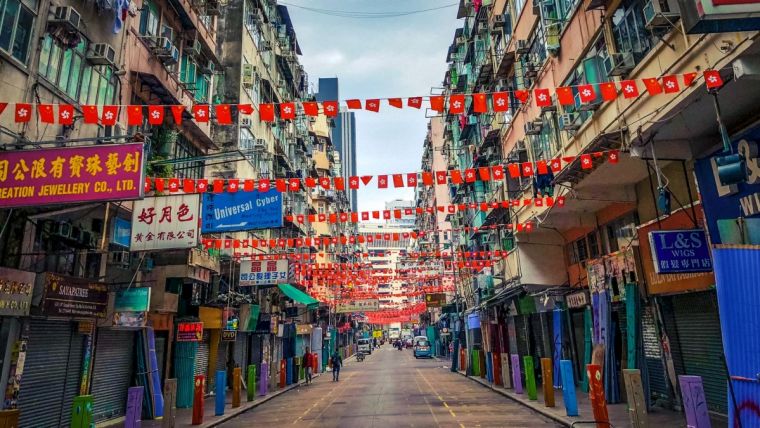
Beijing has horrified millions of Hong Kongers with the enforcement of a new national security law that ushers in sweeping regulations criminalising secession, subversion, "terrorism" and collusion with foreign forces. Anyone accused of breaking this law faces extradition to China for trial and life in prison.
The wording is so vague that no one can be sure how the coming months are going to play out, but what is certain is that these laws pose a serious threat to the freedoms, including religious freedom, of all Hong Kongers, says Gina Goh, Regional Manager for Southeast Asia with International Christian Concern, which supports persecuted Christians worldwide.
Gina speaks to Christian Today about why Christians everywhere need to be worried about what's happening in Hong Kong and what action they can take.
CT: What's your take on the passing of this law?
Gina: We knew that it was coming but I think to many people's surprise, it's actually stricter than we were expecting and there's a clause in there that effectively regulates anybody, not just Hong Kong citizens.
Even before it passed, some people were saying that this is the end of the 'one country, two systems' principle. Sadly, it does seem so and I'm sure a lot of people will feel like Hong Kong as we knew it before is dead. They will continue to fight but it's going to be a lot more difficult because if you say anything against China, that's become criminalised.
Joshua Wong and other leaders of Demosisto have already stepped down because the struggle is going to be very difficult, and the push for human rights and democracy is going to have to be creative now. But even though they've stepped down, it's possible that they could be arrested next week. It's just so hard to predict what's going to happen under these new laws.
CT: One activist Nathan Law has already fled from Hong Kong. Do you think that others will leave Hong Kong as a result of this?
Gina: I'm sure there are other people out there who are thinking about that. Already since last June, hundreds have moved to Taiwan and I'm sure more will be coming. It's like after 1997, when a lot of Hong Kongers decided to leave Hong Kong once the takeover happened.
But people are more concerned about this new law because it's just so hard to even predict what will happen. At least in 1997, there was a framework and people knew where they stood, so they were not as concerned. But the national security law is a clear violation of the principles on which Hong Kong was handed over, so I'm sure a lot of people are concerned about that. I think we can certainly expect people in Hong Kong to start to self-censor.
CT: Is Taiwan looking at what's happening in Hong Kong with concern?
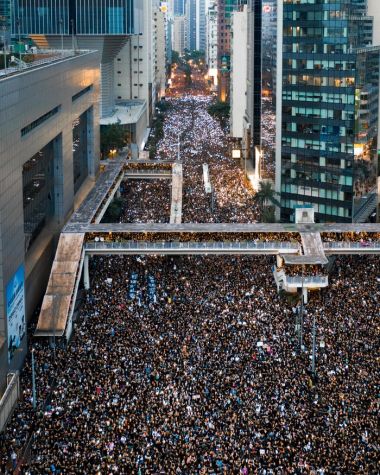
Gina: China always says that Taiwan can be "re-united to" China using the 'one country, two systems' principle but what's happening in Hong Kong just shows that it's not going to work. We can see from Hong Kong that China is not going to honour its promises.
CT: Why is it important that the international community takes action?
Gina: It's right to show the Chinese Government that you can't just violate your promises to the people of Hong Kong and not expect any pushback from the international community.
Since China is such a great power and has trade relations around the world, many governments are very cautious in retaliating towards China but you have to do something to show you are standing with the people of Hong Kong. As fellow democracies, you can't just let something like this go, or simply publish a statement that carries no weight.
Fellow democracies have the responsibility to do something. They need to come together to provide support for Hong Kong and show that they won't just tolerate bullying behaviour. Even if everybody is trading with China and they're afraid China will retaliate by cutting trade, the values of freedom, democracy and human rights are more important and they should be preserved.
I know the UK Government, for example, extended the BNO passport [to offer citizenship]. That's something that provides not only a sense of hope but offers something practical. I think the US Government should consider doing something similar by, for example, offering asylum to Hong Kong citizens.
Hong Kong is not only a financial hub but a lot of people longing for democracy in China look to Hong Kong as an example. A lot of people in the Chinese diaspora see Hong Kong as the last defence of rights and the last hope for democracy in the whole of China but now these rights are being dismantled and the Chinese Government is trying to crack down on Hong Kong hard.
CT: Why do you think that is?
Gina: It doesn't want the rest of China to follow suit and pursue democracy. After the pro-democracy movement started, some coastal cities in Guangdong province, for example, started their own protests against the local government. There was a spillover effect from Hong Kong and that's why the Chinese government is so scared of this spirit of democracy. It is scared that this will spill over from Hong Kong so they want to stop it before it spreads in China and to avoid being taken down by angry citizens.
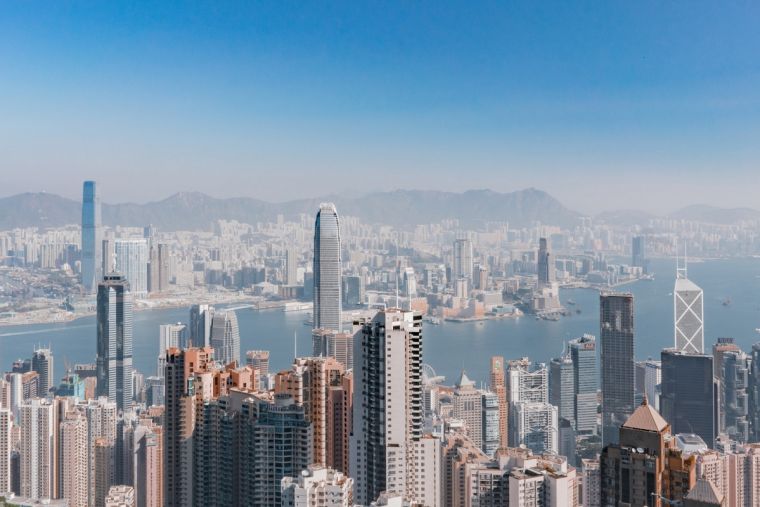
CT: Do you think there can be any turnaround from this latest development? Rather than showing any improvement, the prospects for Hong Kong seem to be becoming increasingly bleak.
Gina: So many have suffered under oppression and persecution in China, but we have to hope that God's justice will come and people will not be oppressed any longer. Right now at least, I hope that the international support for Hong Kong will give people there a sense of hope that they are not alone.
What has sometimes happened with other laws in China is that they are passed but then they are not fully enforced. In China, as we know it, it is a country that does not follow "rule of law," but "rule of people." Whether or not they will know how and to what extent to implement this new law remains to be seen.
There also seems to have been a bit of a power struggle in the CCP because there are people who are very pro-Hong Kong. This can be because the situation there is going to affect them, perhaps because they have property or other assets in Hong Kong. So we don't know yet how this law is going to play out. We need to monitor things over the coming year to see how things actually turn out.
CT: Do you think Christians in Hong Kong should be worried?
Gina: If you look at China, after President Xi Jinping came into power he started cracking down on churches. A Chinese friend told me that before Xi came into office, for Christians, it was like a yellow light - the authorities didn't like Christians but they tolerated them and would sometime turn a blind eye to their gatherings. But after he came to power, the light turned red, especially for underground churches. The crackdown is increasing and they're trying to get rid of house churches once and for all.
This is a concern for Hong Kong churches because they effectively qualify as 'underground' churches. We don't know yet if China is going to come in and set up something like the Three Self Patriotic Church or the Chinese Patriotic Catholic Association to make sure they have all of these churches under their control. But they can only select so many pro-China priests and pastors. Hong Kong pastors have known freedom for a long time so it's hard for them to suddenly yield to the control of the CCP.
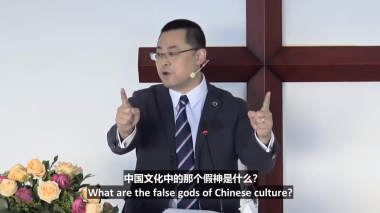
If you look at the Early Rain Covenant Church in Chengdu, Sichuan, Pastor Wang Yi spoke out about religious freedom and oppression, and for this he was charged with subversion of state power. So if you take the same standard and apply it to Hong Kong churches, a lot of pastors are going to be in trouble because they have been on the streets and spoken out against the Chinese government and Hong Kong government. People like Cardinal Zen, the Auxiliary Bishop of Hong Kong, and Christian scholar Ying Fuk-Tsang are likely big targets. They have not been afraid to speak out against the extradition laws.
But again, the laws are so broad we don't yet know fully how things will be. Just this week, the Hong Kong police reportedly decided that stickers with a Bible verse that some girls had in their backpack were in violation of the national security law. So maybe even the Bible text itself, which talks about justice and mercy and rights, will violate this law. It's so broad. So it's definitely worrying for Christians there. Maybe their sermons or prayer vigils will be monitored by security agents; maybe they already have been and they just weren't aware of it.
Another thing is that several years ago, a Hong Kong businessman was smuggling Bibles into China and China charged him with illegal business. With this new law now, China doesn't even need to use trumped up charges to imprison you. They can just say you are violating the national security law and you can be in prison for up to 10 years. That's definitely concerning for Hong Kong churches.
CT: Why does the CCP see Christians as such a great threat?
Gina: I would say it's really more President Xi Jinping. His fear is firstly about the number of Christians. They have grown exponentially in the last 10 years. Although there is no official data, it's believed they surpass the number of CCP members so they are afraid of this because they know that Christians' allegiance is not to the party but to the Lord. If it's a mass organisation, they feel threatened because they can't control that, so that's why they want to get rid of house churches.
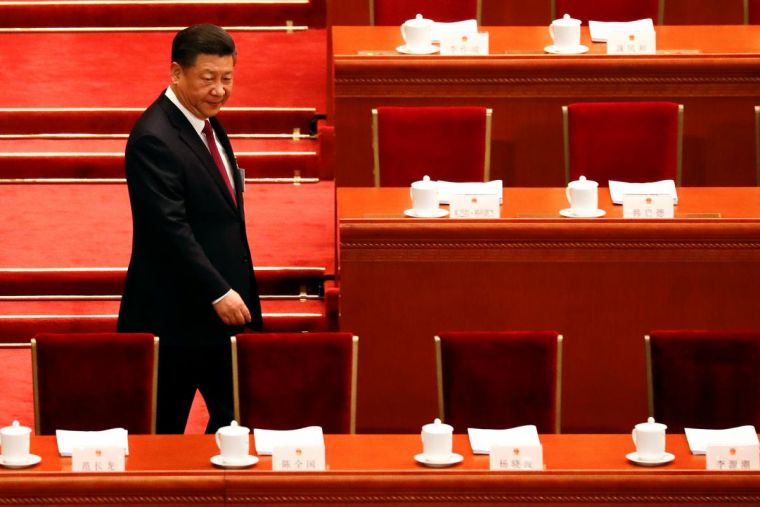
But also President Xi wants people to praise him and the CCP. That's why in rural areas, churches were told to take down pictures of Jesus and replace them with his portrait, and give thanks to him and the party. China is increasingly becoming like North Korea where people have to worship the Kim regime.
Another thing is the blending of democratic values and Western values. With Christianity comes the pursuit of justice, freedom and human rights. There is still this notion that Christianity is a Western religion, and the CCP is anti-Western ideologies, especially in recent years. The CCP doesn't want these ideas to spread around China because that becomes a threat to the regime. What if the people all decide to rise up and say we have had enough; that there's no justice in this country and we don't need you to rule us any longer?
CT: What would you like Christians everywhere to be doing or praying for when it comes to Hong Kong?
Gina: I think if people are not familiar with the issue, first learn about it and why Christians should care. We need to stand with democratic values, human rights and democracy, and as Christians we need to stand with those who are being oppressed. That's what Jesus has commanded us to do.
In the last few months, the governments and media all over the world have been distracted by the coronavirus pandemic so the attention hasn't been on Hong Kong but with this new measure, it needs to be back on Hong Kong again. On social media, Christians can tweet and help to keep the conversation alive. They can petition their government to take necessary measures, and tell their government that they care about this issue and want actions to be taken to help the people of Hong Kong.
And of course pray. Pray in your churches and hold prayer vigils. As Christians, we need to pray to show that we are standing in solidarity with Hong Kong Christians and churches because they are afraid; there is certainly a sense of fear.
Pray for the Christians in Hong Kong to stand strong because they need to be the salt and light there. It's hard to imagine being in their shoes. Especially the church leaders must feel like they are being pressed from every side. The church leaders are shepherds of people but at the same they're fearing for themselves as well. They could face arrest at any time so they need our prayers to stand strong.











